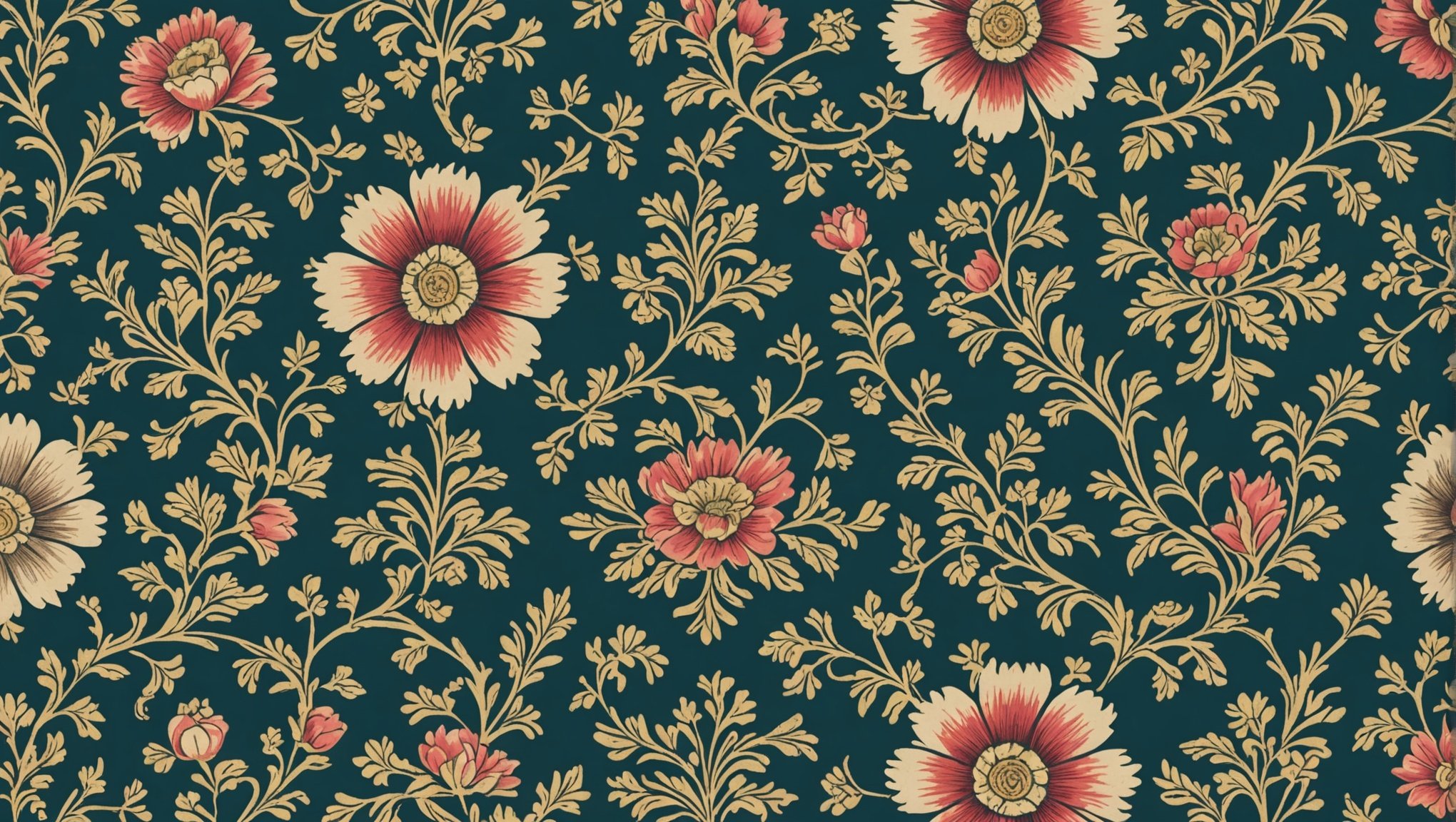Overview of British Wallpaper Design
British wallpaper history dates back hundreds of years, with its significance becoming prominent during the 18th and 19th centuries. Initially, wallpaper was a cost-effective alternative to tapestries and wall paintings, making it accessible to a broader audience. Throughout its history, the development of British wallpaper has mirrored societal trends and technological advancements, becoming a staple in interior design.
The importance of wallpaper as an art form lies in its ability to transform spaces through texture, pattern, and colour. By adding depth and character to interiors, wallpaper offers a unique aesthetic that paint alone cannot provide. During the Victorian era, complex designs became a symbol of wealth and taste.
Also read : Join the Ultimate Experience: Hands-On Workshops in Authentic British Sausage Crafting for Tourists
Key design techniques have evolved over time, showcasing the intricate artistry involved. Traditional methods, such as woodblock printing, were painstakingly detailed and required substantial skill. As technology advanced, new techniques such as rotary screen printing and digital printing emerged, allowing for more elaborate designs and faster production.
In British wallpaper history, the blend of craftsmanship and innovation has led to a rich and diverse array of designs. Each piece of wallpaper symbolizes not just a design trend but a cultural imprint, reflecting the tastes and technologies of its time.
Also read : Discover the Art of Traditional British Basket Weaving: Engage in In-Depth Workshops for Tourists
Immersive Workshops Across the UK
Wallpaper design workshops in the UK offer immersive experiences across various locations, appealing to both locals and travellers. These opportunities allow participants to explore creativity while enjoying the rich landscape.
Workshop Locations
Numerous major cities, including London and Manchester, host a variety of wallpaper design workshops. These urban hubs offer access to renowned institutions and studios where enthusiasts can dive deep into the craft of wallpaper design. Additionally, certain unique rural settings provide a refreshing perspective, allowing individuals to merge artistic expression with tranquillity.
Workshop Offerings
A diverse array of workshops is available, catering to beginners as well as those seeking advanced or specialty techniques in wallpaper design. Choices range from one-day sessions to week-long courses, with varying structures to accommodate different skill levels and interests. Some workshops even provide opportunities for participants to work on custom design projects, offering a tailored artistic experience.
Pricing and Schedules
The average cost of attending a workshop can vary, depending on duration and materials provided. Workshops often follow a seasonal schedule, aligning with special events to enhance the learning experience. Attendees may also benefit from available discounts or packages, particularly for group bookings, making these immersion experiences more accessible for enthusiasts.
Techniques and Skills Acquired
Delving into wallpaper design opens up possibilities for acquiring a variety of hands-on skills. These workshops offer an overview of essential techniques that are fundamental to British wallpaper design. Participants engage in exercises that provide insight into the intricacies of artistic craftsmanship.
The exploration of materials is a significant component of the learning process. Various tools and traditional materials—such as fine papers and rich pigments used historically in the UK—are introduced. These materials form the foundation for creating unique and authentic designs, enhancing texture and depth in the final product.
The artistic craftsmanship of wallpaper creation goes beyond physical application. It involves a deep understanding of design principles such as balance, contrast, and harmony. Mastering these principles allows designers to produce compelling and visually pleasing patterns that stand out. Skills such as sketching, pattern drafting, and colour theory are honed, contributing to developing a personalised style.
Such workshops also emphasise innovation within traditional practices, encouraging participants to blend techniques with contemporary elements, thereby expanding and refining their design repertoire. By immersing themselves in these practices, participants not only learn about the art but also cultivate a greater appreciation for it.
Notable Artists and Influencers in Wallpaper Design
In the dynamic world of wallpaper design, a few British wallpaper artists have profoundly influenced both historical and contemporary trends, leaving an indelible mark on the artistic heritage. One significant figure is William Morris, whose work from the 19th century continues to inspire with its intricate patterns and natural motifs. His designs not only celebrated British flora and fauna but also represented a turning point in decorative arts, promoting craftsmanship and the beauty of nature in everyday spaces.
Fast-forward to the present, contemporary designers like Orla Kiely have captured the essence of British culture through their modern interpretations. Her bold, repetitive patterns draw upon retro themes while maintaining a fresh appeal, bridging the gap between past and present influences.
These influential designers have a unique ability to encapsulate elements of British identity within their work. From the elegance of the Victorian era to the geometric minimalism sought today, their creations serve as a canvas reflecting societal shifts and cultural narratives.
Additionally, these artists not only shape trends but also encourage others in the industry to experiment and innovate. By blending traditional techniques with modern inspirations, British wallpaper artists continue to impact the global design scene significantly. Their work remains pivotal in defining and preserving artistic tradition within the wallpaper domain.
Traveller Testimonials and Reviews
Participants often rave about their workshop experiences, expressing how these sessions have profoundly influenced their artistic journey. A common theme in participant reviews is the transformative nature of these workshops, where artists move from tentative beginners to confident creators.
Success Stories
Many testimonials highlight personal growth. One such story involves a participant who entered as a novice but, through hands-on guidance, achieved significant artistic enrichment. Comparisons of student work before and after participation reveal marked improvements in technique and artistic vision. This evolution underscores the workshops’ impact on nurturing creative talent.
Common Highlights
Feedback consistently applauds the workshops for their emphasis on skill development and the sheer enjoyment of immersing oneself in a creative environment. Participants frequently mention the invaluable opportunity to network with fellow artists, often leading to collaborations. Suggestions for potential attendees include embracing the learning process and engaging actively with peers to maximise the experience.
Critiques and Areas for Improvement
Constructive critiques from participants suggest the workshops could include more diverse content and longer sessions to cater to various learning paces. Some attendees reflected on aligning their expectations with the reality of a highly intensive, yet rewarding experience. Such feedback aids in enhancing future courses, aiming to exceed expectations and continue fostering artistic growth.
Planning Your Wallpaper Workshop Experience
Planning for a wallpaper workshop involves a few important steps to ensure a smooth and enriching experience. Firstly, effective travel planning is essential. Consider factors such as the workshop location, accommodation options, and travel time. Research the area to find suitable lodging near the venue, and book your stay well in advance to secure the best rates.
Before attending your first day of the workshop, it’s crucial to be adequately prepared. Start by understanding what to expect upon arrival. Many workshops begin with an introductory session to familiarise participants with the tools and materials used. Be ready to engage, as this helps in making the most of the immersive travel experience.
Preparation doesn’t stop at planning your itinerary; packing wisely is equally important. Create a suggested packing list that includes essentials such as comfortable clothing, personal protective equipment like gloves or masks, and any specific tools or materials that may be required, depending on the workshop’s theme.
To maximise your workshop preparation, connect with fellow attendees through social media groups or forums. This can not only enhance your understanding of what to expect but also provide valuable tips and insights from past participants.















